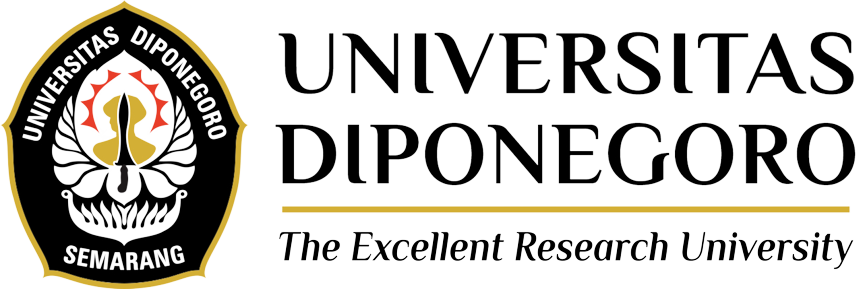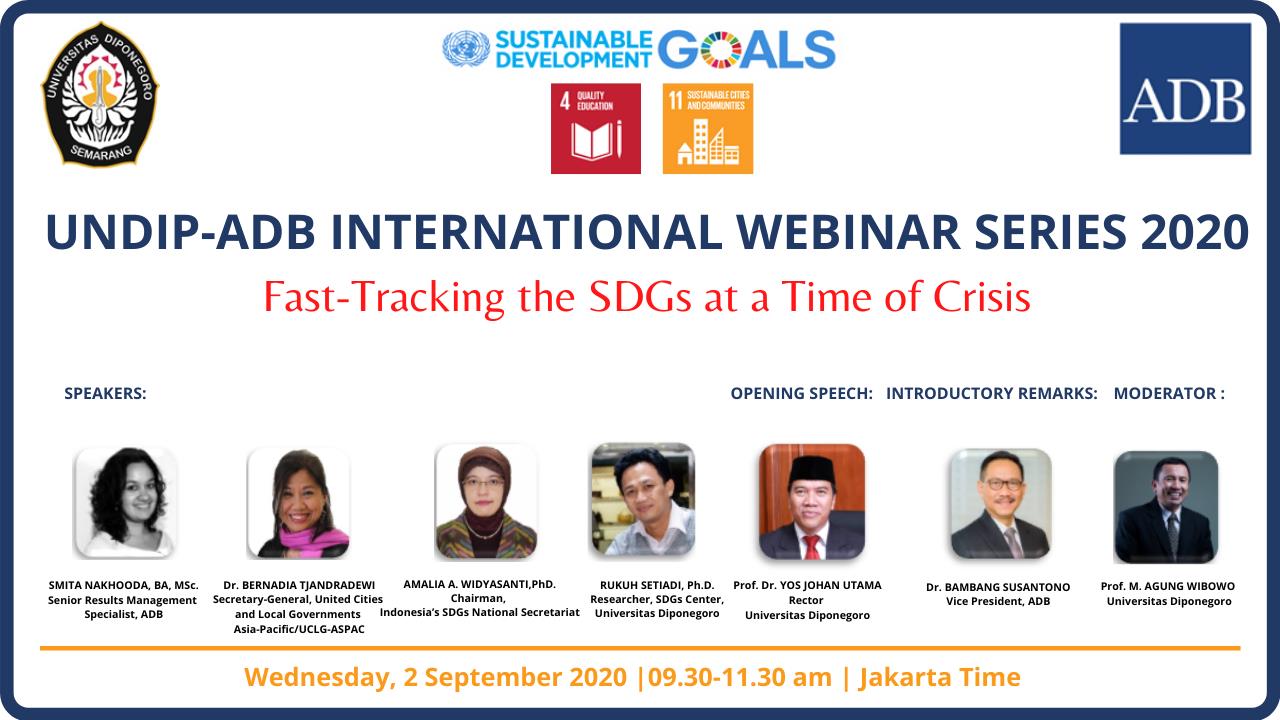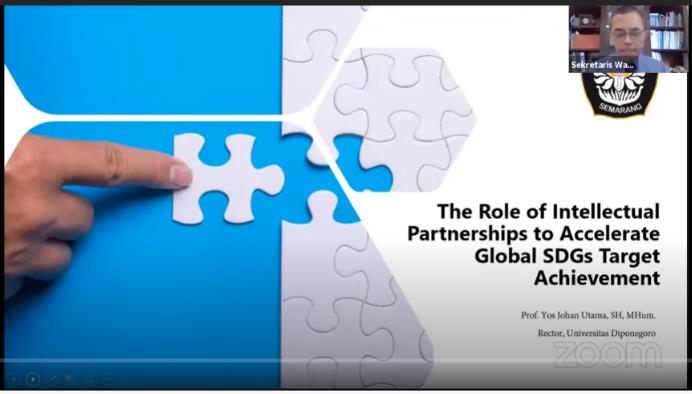The Diponegoro University Rating Office in collaboration with the Asian Development Bank (ADB) has again held the Undip-ADB 2nd International Webinar which is still part of the Undip SDGs Series 2020 Webinar with the theme “Fast-Tracking The SDGs at a Time of Crisis”. The speakers at this webinar are experts in their fields who came from various countries.
This webinar event starts at 09.30 WIB via zoom and live streaming on YouTube. The webinar was opened with a speech from Prof. Dr. Ir. Ambariyanto, M.Sc. as Vice Rector for Research and Innovation, Diponegoro University. Prof. Ambariyanto said that Diponegoro University maintains its commitment to actively play a role in various efforts to achieve the SDGs (Sustainable Development Goals) in 2030. One of Undip’s active roles is the existence of the Undip SDGs Center and establishing partnerships with various related parties in order to jointly realize the targets of the SDGs. The next event was the presentation of the Main Speaker (Keynote Presentation) by Ir. Bambang Susantono, MCP., MSCE., Ph.D. as Vice President for Knowledge Management and Sustainable Development of ADB. He said that there is a need to take accelerated steps to achieve SDGs which may experience a slowdown due to the Covid-19 pandemic attack and the achievement of SDGs that have not touched local communities and the achievement of 17 SDGs on average has only been achieved below 40%. During this pandemic, ADB provided response and recovery assistance to ADB member countries, including Indonesia. ADB directs recommendations for three things in continuing the development process in the era of the Covid-19 pandemic, namely: 1) The state recovery program still considers environmental aspects; 2) Carrying out business activities with new policies and methods in accordance with the new normal; 3) Activities to recover conditions caused by a pandemic will adhere to the principles of green environmental sustainability and inclusive and sustainable development.
The panel presentation session was moderated by Prof. Ir. M. Agung Wibowo, M.M., M.Sc., Ph.D. The speakers who appeared at the panel session of this webinar were Smita Nakhooda, B.A., M.Sc., as ADB’s Senior Results Management Specialist, Dr. Bernardia Tjandradewi as Secretary General of the United Cities and Local Government Asia-Pacific (UCLG ASPAC), Amalia A Widyasanti, S.T., M.Sc., M.Eng., Ph.D as Chairman of Indonesia’s SDGs National Secretariat, and Dr. Rukuh Setiadi as Undip SDGs Center Researcher. Smita Nakhooda, M.Sc. presented “Fast-tracking the SDGs: Driving Asia Pacific Transformation” which discussed the process of achieving the SDGs by countries in Asia-Pacific. Countries in Asia-Pacific can be classified into four types of achievement speed including six points of achievement, namely economy, environment, food and nutrition, quality of urban life, health and energy. The second speaker, Dr. Bernardia Tjandradewi in her presentation “Innovative Solutions to Implement SDGs in Asia-Pacific through Local Governments amid Covid-19” explained that the Covid-19 pandemic still brings positive things, such as the vibrant digital economy that is being activated by the local government and the strengthening of mutual cooperation and the spirit of solidarity in between communities. Furthermore, Amalia A Widyasanti, Ph.D said that during this pandemic, three important pillars must be maintained to maintain the resilience of the state and nation, namely economy, environment and government law. In addition, human resources are also an important asset for the sustainability of life, thus human health is very crucial in her presentation entitled “Indonesia’s Challenges, Key Strategic Policies and Priority Agendas Toward 2030”. The final speaker, Dr. Rukuh Setiadi delivered a presentation entitled “The Implementation of SDGs: A Transformative Perspective of Sub-National” which contains the implementation of SDGs at the sub-national level which can take advantage of various stages such as cooperation between related institutions and community empowerment in each region.
The webinar discussion was very interactive and there were lots of questions asked by the participants, both via Zoom and live YouTube. The number of participants who took part in this Webinar was around 3600 people from 21 countries such as Australia, Gambia, India, United Arab Emirates, Malaysia, Netherlands, Nepal, Philippines, Singapore, Sudan, Thailand, Timor-Leste, Cambodia, Hong Kong, Bangladesh, Burma, Vietnam, Timor Leste, Pakistan, and Indonesia.
The link for this YouTube webinar: https://www.youtube.com/watch?v=Gzy2y9LQfzc


